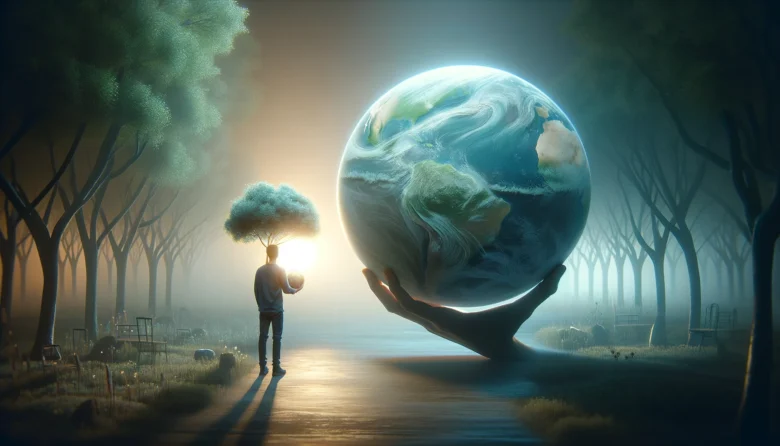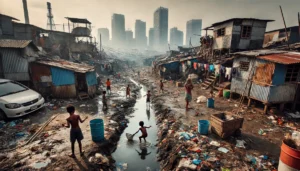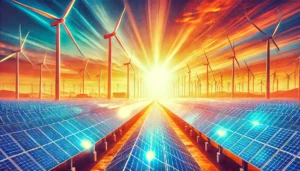In today’s rapidly changing climate, two terms have become increasingly relevant to our discussions on mental health: eco-anxiety and digital wellness. Eco-anxiety, the deep concern many of us feel about the ongoing environmental crises, clashes with the concept of digital wellness, or finding a healthy balance in our use of technology. This blog aims to explore these intertwined challenges and offer guidance on navigating the complex landscape of mental health in the age of climate crisis.
Understanding Eco-Anxiety
Eco-anxiety isn’t just a buzzword; it’s a profound and growing concern among people worldwide. This term describes the chronic fear of environmental doom—a psychological condition spurred by the visible and escalating impacts of climate change. From melting ice caps to devastating wildfires, the signs of our planet’s distress are impossible to ignore, and they weigh heavily on the minds and hearts of many.
Unlike other anxieties, eco-anxiety transcends age, culture, and geography. It’s a shared unease that stems from a unique source: the realization that our environment, the very foundation of our existence, is in peril. This realization can lead to intense feelings of helplessness, despair, and frustration over the current state of the environment and the uncertain future of our planet. The continuous stream of alarming news about climate change only serves to deepen this anxiety, making it a critical aspect of the conversation on mental health and environmental stewardship.
The Role of Digital Wellness in the Climate Crisis
In our digital age, the concept of wellness extends beyond physical and mental health to include our digital interactions. Digital wellness refers to finding a healthy balance in our use of technology, ensuring that our digital habits support rather than detract from our overall well-being. This is especially pertinent when considering the climate crisis, as the way we consume information online has a significant impact on our mental health.

The continuous exposure to distressing news about the climate can exacerbate feelings of eco-anxiety. However, digital wellness teaches us to be mindful of our digital consumption—encouraging us to engage with technology in a way that informs and empowers rather than overwhelms us. By fostering digital wellness, we can better manage how we process the barrage of information related to climate change, finding a balance that allows us to stay informed without becoming consumed by despair.
Strategies for Navigating Mental Health in the Climate Crisis
Navigating mental health in the age of the climate crisis requires a multifaceted approach. Here are key strategies to consider:
Awareness and Education
Understanding the facts about climate change is empowering and can drive meaningful action. However, it’s equally important to recognize the mental health toll of constant exposure to negative news. Striking a balance between staying informed and safeguarding our mental well-being is crucial.
Sustainable Digital Consumption
We can manage eco-anxiety by curating our digital environments. This involves limiting exposure to distressing climate news and engaging with uplifting content that highlights solutions and positive changes. Such an approach can help maintain hope and motivation.
Active Engagement and Community Support
Feeling a part of something larger can significantly reduce feelings of helplessness. By participating in community actions, environmental advocacy, and sustainability initiatives, individuals can find a sense of control and purpose. These activities not only contribute to the solution but also build a supportive network that can bolster mental resilience.

Digital Detox and Nature Therapy
Regularly disconnecting from digital devices and immersing ourselves in nature can have profound benefits for our mental health. Nature therapy—spending time in natural settings—can reduce stress, enhance mood, and strengthen our connection to the environment we’re striving to protect.
Mental Health Support
For those struggling with eco-anxiety, professional support can be invaluable. Therapists, particularly those familiar with eco-anxiety, can offer coping mechanisms and strategies to manage these feelings. Additionally, mindfulness practices and support groups can provide solace and a sense of community.
Supporting Young People in Managing Eco-Anxiety
Children and adolescents are particularly susceptible to eco-anxiety. The Royal College of Psychiatrists reports that a significant number of child and adolescent psychiatrists in England have seen patients distressed by the climate crisis. This distress is understandable, as younger generations are growing up with a looming sense of fear about their future on this planet.

Supporting young people in managing eco-anxiety involves open conversations about their feelings and fears. Empowering them to engage in positive actions and environmental advocacy can also make a significant difference. Here are some practical steps:
- Listen and Validate: Encourage open discussions about their feelings. Validating these emotions as normal responses to the climate crisis can help young people feel understood and less alone.
- Encourage Nature Connection: Spend time outdoors as a family. Activities like gardening, hiking, or simply playing outside can help young people develop a personal connection with the environment.
- Promote Action and Engagement: Help them find ways to contribute to environmental solutions, whether through local community projects, climate strikes, or online advocacy. Taking action can transform feelings of helplessness into empowerment.
- Educational Support: Provide resources and learning opportunities about climate change and sustainability. Knowledge can empower young people to make informed decisions and feel more in control of their future.
Navigating mental health in the climate crisis is a complex but crucial task. By fostering digital wellness, engaging in community support, and providing targeted help for young people, we can build resilience and find hope in collective action for a sustainable future.

Conclusion
In navigating the intertwined challenges of eco-anxiety and digital wellness in today’s climate crisis, the key lies in finding a delicate balance. By fostering digital wellness, we can protect our mental health while staying informed and engaged with environmental issues. Strategies such as sustainable digital consumption, active community participation, and embracing nature therapy offer practical steps toward managing the psychological impact of these global challenges. It’s about making informed choices that benefit both our mental well-being and the planet, ensuring that we remain resilient and hopeful in the face of environmental concerns.
As we conclude, remember that navigating eco-anxiety and maintaining digital balance are collective endeavors, integral to our journey towards a sustainable future. By adopting mindful practices and seeking support when needed, we can contribute positively to climate action without compromising our mental health. Let’s move forward with optimism, armed with the tools to balance our digital lives and environmental responsibilities, fostering a healthier relationship with our planet and ourselves.
Author’s Note
As we delve into the intersection of eco-anxiety and digital wellness, I hope that this blog offers not only insight but also practical strategies for managing the psychological impacts of our climate crisis. Remember, it’s about finding balance and fostering resilience, both for our planet and ourselves.
G.C., Ecosociosphere contributor.
References and Further Reading
- Is It Any Better? A Comparison of PhD Students’ Experiences and Degree Completion Plans Between the Summers of 2020 and 2021, journals.sagepub.com
- The Role of Culinary Education in Promoting Nutritional Awareness: A Systematic Review, journals.e-palli.com
- NMDA receptor modulation by Esculetin: Investigating behavioral, biochemical and neurochemical effects in schizophrenic mice model, sciencedirect.com
- Biomedical research must change as the climate does, thelancet.com
- Personality Traits and Body Appreciation among Undergraduates
- Designing and Piloting a Digital Mental Health Intervention
- Digital Art Exhibitions and Psychological Well-Being
- Loneliness in the Digital Age
- The Right to Disconnect





Comments
Can you be more specific about the content of your article? After reading it, I still have some doubts. Hope you can help me.
Your point of view caught my eye and was very interesting. Thanks. I have a question for you.